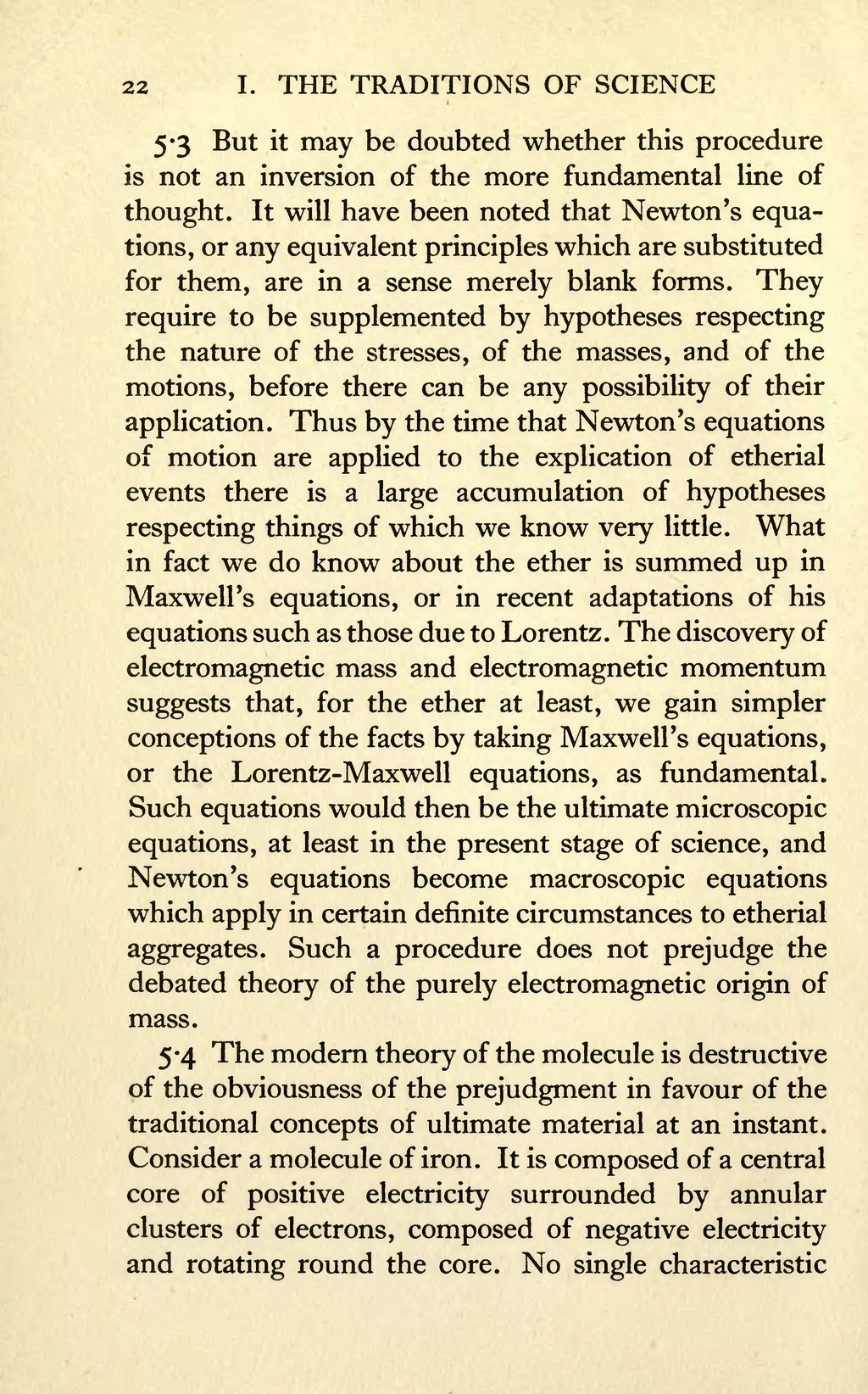5.3 But it may be doubted whether this procedure is not an inversion of the more fundamental line of thought. It will have been noted that Newton’s equations, or any equivalent principles which are substituted for them, are in a sense merely blank forms. They require to be supplemented by hypotheses respecting the nature of the stresses, of the masses, and of the motions, before there can be any possibility of their application. Thus by the time that Newton’s equations of motion are applied to the explication of etherial events there is a large accumulation of hypotheses respecting things of which we know very little. What in fact we do know about the ether is summed up in Maxwell’s equations, or in recent adaptations of his equations such as those due to Lorentz. The discovery of electromagnetic mass and electromagnetic momentum suggests that, for the ether at least, we gain simpler conceptions of the facts by taking Maxwell’s equations, or the Lorentz-Maxwell equations, as fundamental. Such equations would then be the ultimate microscopic equations, at least in the present stage of science, and Newton’s equations become macroscopic equations which apply in certain definite circumstances to etherial aggregates. Such a procedure does not prejudge the debated theory of the purely electromagnetic origin of mass.
5.4 The modern theory of the molecule is destructive of the obviousness of the prejudgment in favour of the traditional concepts of ultimate material at an instant. Consider a molecule of iron. It is composed of a central core of positive electricity surrounded by annular clusters of electrons, composed of negative electricity and rotating round the core. No single characteristic
